Since about fifth or sixth grade, my comfort character has been Nico di Angelo from the Percy Jackson series. Nico Di Angelo is a young Italian son of Hades, and he has been through a lot throughout the series when he is not even the main character. Nico is a character steeped in grief, religious trauma, guilt and internalized homophobia; a brutal combo to say the least. That being said, Nico’s character reflects the experiences of so many queer kids, including myself. I related to him before I knew he was queer, and when I read about his queerness in The House Of Hades, he was the first ever gay character I had ever seen. I had characters I liked to think were gay, but never before had a character felt more personal than that moment, when I read the words, “I’ve seen a lot of brave things. But what you just did? That was maybe the bravest,” as a response to Nico coming out. It was one of the first times my queerness did not feel like a weakness.
I remember sitting in class, nose buried in a Percy Jackson book, completely wrapped up in the story unfolding before me. Nico was my favorite the moment I met him. Immediately I saw myself reflected in him. I had so much in common with him, most of them things I would not realize until I was older. I have so many disastrous drawings of Nico hidden away in my old sketchbooks, wildly different from how I draw him now. However, when I look back at them, I still smile. I am so glad I had the Percy Jackson series in my life then, and I am still just as in love with it years later. All art in this article has been drawn by me over the past few years.
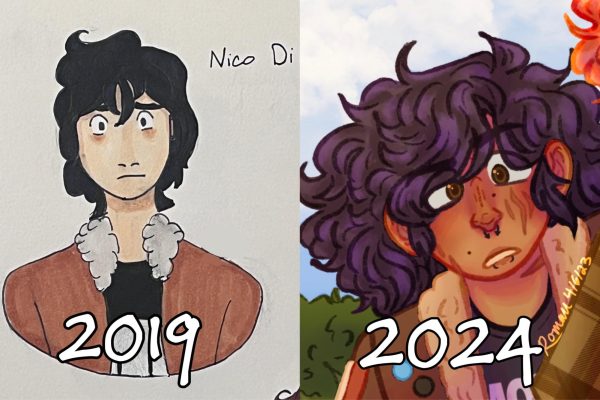
Note: Nico is canonically very pale, my current Nico design just doesn’t follow that.
Nico’s history begins in Venice, Italy, about 1932. At this point in history, Italy was under the rule of Benito Mussolini, a famous figure even now. Benito Mussolini was a dictator who, among many things, hated the existence of gay people. Gay people around Italy were rounded up and banished to an island off shore to live in prison work camps. This was because being gay was thought to be dishonorable to your family and a threat to Italian Machismo, seeing behind gay as “degeneration” and against morality. On exiling gay people, Mussolini’s regime added that it was done for the “improvement of the race.” Mussolini also was an ally of Hitler and the Nazi regime. I bring this up because one of the first Nazi book burnings was the destruction of a queer clinic and all its medical knowledge on transgender and gay people.
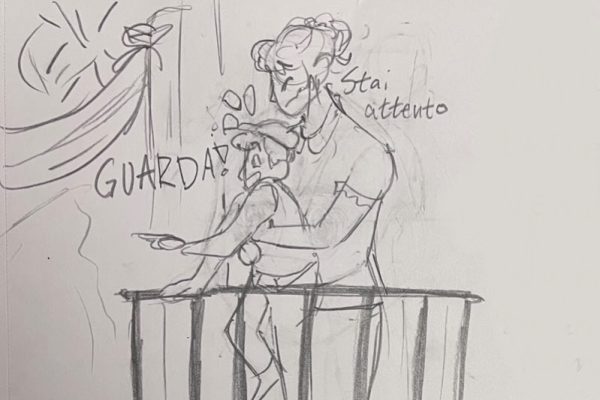
Italy is also known for being a very religious country, specifically Roman Catholic. This is where Nico grows up with his mother, Maria, and his sister, Bianca. Nico’s life in Italy is not touched on a lot, but one moment that is explored is Maria di Angelo reading to her children Dante’s Inferno. Dante’s Inferno is a piece of biblical fiction written about the seven layers of hell, following Dante Alighieri as he traverses hell. As Dante goes through the deepest level of hell, he finds there are three sections, the last one being for the worst of the worst. Murderers are in the top portion of the seventh layer. Gay people were in the third and final pit. That is what Nico was taught as a child. There is a moment Nico also speaks on, where he showed a boy his age his Mythomagic cards, calling Ares pretty. In response, the child said he was weird, and they never hung out after that.
When World War II approaches, Hades flees with his family to America, only for their hotel to be struck by lightning summoned by Zeus. Nico’s mother died in this instance. As a response Hades erases his children’s memory before putting them inside of the Lotus Hotel and Casino.
Time in the Casino does not work the same as ours. Bianca and Nico are in the casino for two months, but when they emerge it is now the 2000s / 2010s. They are sent to a boarding school by the name of Westover Hall. Very quickly monsters find the siblings and the two are rescued by Percy Jackson, Annabeth Chase, Grover Underwood and Thalia Grace. Percy and his friends valiantly save Nico and his sister, but this moment marks a massive turning point for him, for better or worse.
The band of demigods are luckily assisted by the Hunters of Artemis, a group of young girls who have vowed their loyalty to the Goddess Artemis. In exchange, they will be forced youthful and conditionally immortal, meaning they cannot die by any natural means, only in combat. Together, they take care of the enemy, but not without Percy’s best friend Annabeth getting swept away with him.
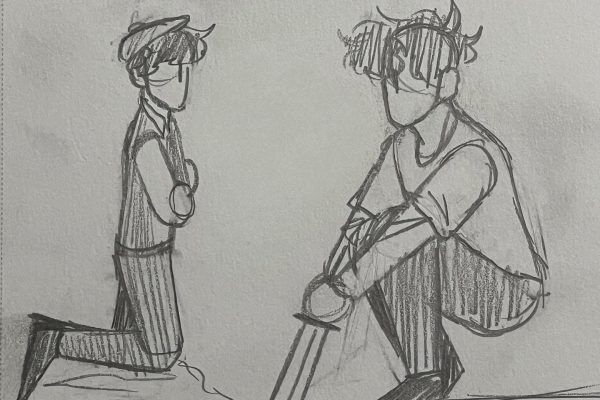
Seeing the Hunters of Artemis, Bianca takes a quick liking to them. With a bit of convincing, she decides she will join, much to the anguish of Nico. Once more, it is a moment that will permanently change his life. Bianca was tired of looking after her little brother, it was all she could remember. When she saw the freedom of The Hunters of Artemis, she jumped at a chance to be a part of it. Additionally, growing up in the 30s was obviously difficult for a young girl’s self worth. Seeing a group of powerful girls probably set off a spark she did not know existed. But to Nico, he felt betrayed. He needed his sister, but his sister also needed time away from him.
The di Angelos are swept off to Camp Half-Blood, a camp for demigod children, as Artemis sets off to hunt down the monster and rescue Annabeth. Once at camp for a few days, Bianca, Thalia, Grover and Zoë Nightshade (Artemis’ right hand woman) go on a quest to find where Artemis had run off to. Nico makes Percy promise to keep Bianca safe as Nico plans to sneak off after them to save Annabeth. Percy promises.
In Hephaestus’ junkyard, Bianca sees a mythomagic Hades figurine. She knows she should not touch a god’s things, but… wouldn’t Nico just love it? The junkyard comes to life as a robot. Eventually, Bianca is killed under its massive foot.
When they return to Camp Half-Blood, Nico happily runs to Percy, asking for his sister. Percy hands him the figurine, apologizing for her fate. Nico crumbles, the earth beneath his feet opening a cavernous crack. Skeletons crawl out as Nico screams at Percy, running off into thick woods.
After searching for days, Nico is presumed dead. He isn’t, but he is so afraid, for so many reasons.
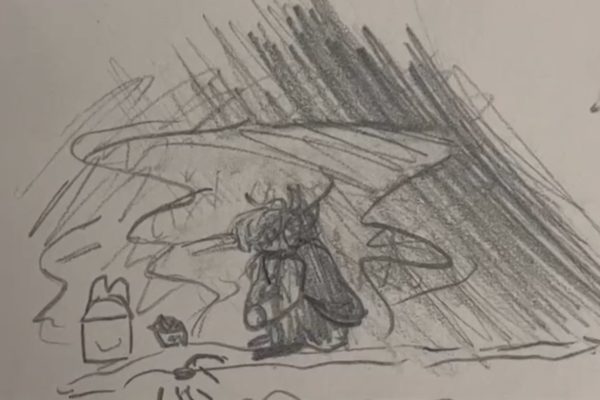
Nico has never been alone before, his sister was all he had and now he had nothing at all.
And Percy.
It hurt his mind.
He hated Percy. Every part of him screamed at the thought of him.
He hated Percy, but he was also lying to himself.
When he first met Percy, Percy was everything Nico loved. He was bold, he was brave, he was skilled and he was a hero.
Nico loved heroes.
Nico loved Percy.
And then, to Nico, Percy killed his sister. Suddenly this love of Percy, this yearning in his chest was so loud and so painful. At first it was innocent, but now that he was alone with himself with no one searching for him, the shame flooded in. He was hopelessly in love with Percy and he hated him for that, Percy was everything he was not.
For the next five books Nico is completely lost in his own world. He is followed by shame, fear, anger and every overwhelming feeling the world could give him. He tries to summon his sister, but his sister only comes when Percy arrives. He betrays Percy, handing him into Hades. Percy attacks Nico for that. And in return, Nico not only gives him his freedom, but he bathes him in the River Lethe for immunity. All Percy has to do is cling onto a memory and he will be invincible aside from a spot on the small of his back, his own Achilles heel.
Nico wonders to himself, “maybe this will make him love me?”
Percy’s memory is of Annabeth.
This portion of Nico’s story always strikes me for so many reasons. Riordan tackles the topic of grief very well through him and his decision in later books to have Nico divulge what was going through his mind in that point of his life is very impactful.
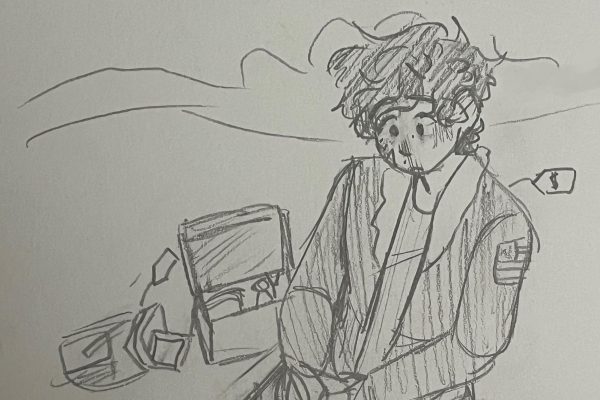
Of course, first and foremost, Nico’s story of grief is just that; grief of his loved ones. But, on another level, Nico is mourning much more than that.
Up until this moment, Nico had lived a normal life. But his meeting of Percy causes a spiral for him.
A part of the queer experience often overlooked is grief. So many queer people will mourn what life they thought they would live before they knew they were gay. A girl may grow up to realize she is a lesbian, but she will still grieve the normal life she could have had if she wasn’t. Queer people often mourn the part of ourselves we will not be. For many gender queer people, we also frequently mourn our childhoods. Looking back, I mourn the absence of boyhood. I never got to grow up as a boy, and I will never get to change that. I will mourn who I could have been if things were different.
From an allegorical perspective, Percy entering Nico’s life is this moment. Percy is who makes Nico realize he does not like girls. Meeting Percy triggers a spiral in Nico’s life. His world falls apart. He’s scrambling to pick up pieces that never existed in the first place, chasing who he could be, always trying to bring back his old life even if it is no use.
Nico’s grief is symbolic of Queer grief. Percy is his queerness. When Nico realizes he is gay, he loses what he had. Suddenly, every part of his childhood is gone. Not only was Nico ripped out of the 1930s, he also lost the only family members he had left. Nico is mourning the life he could have had as a normal child. But ever since meeting Percy, he has truly realized he can never return to that moment.
Still, he tries to anyway.
Many queer people, in realizing they are LGBT, completely panic. Many try to heavily overcompensate, trying to almost brute force themselves out of who they are. Personally, when I realized I was trans, I immediately tried to immerse myself in my girlhood, forcing myself into it hoping one day, just maybe, it would work and suddenly I would be a girl again. But you’ll always realize it does not work. Instead of “fixing” yourself, you are digging yourself deeper into a pit of despair with no return.
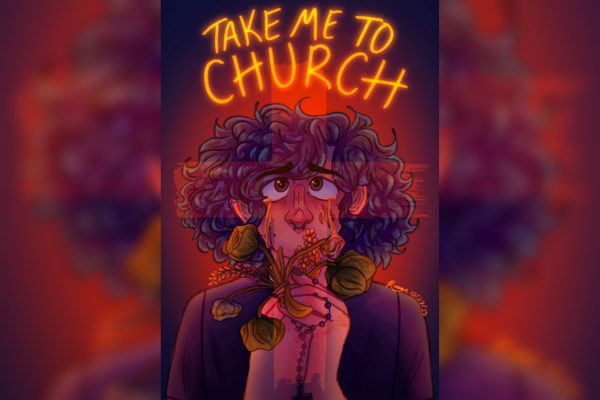
Additionally, internalized homophobia only enhances the problems queer kids face, especially at the hands of so-called “Christians” who berate the queer community with hatred and blasphemy despite a large portion of queer people being religious themselves. This guilt instilled by religious mobs is a driving factor in why so many queer folks believe they are worth nothing. Nico does the same, trying to find “solutions” to who he is. Religion is so often used as a shield for homophobia that we start to believe that it is truly God’s word, but it just is not. Hatred of minorities through the facade of religious integrity is so common, but the Bible never tells us to try and “fix” gay or trans people, in fact he never even says gay and trans people are sinful.
At this point in their lives, with an overwhelming feeling of loss and loneliness, many queer people will do anything to ease their pain, or even to punish themselves. Queer youth specifically have incredibly high suicide and self harm rates compared to those of their cisgender and heterosexual peers.
It is something so unexplored beyond off hand references, but Nico di Angelo does go through this. He quite literally goes through hell and back.
Following the conclusion of the first series of the Percy Jackson series, the embodiment of death, Thanatos, is captured (Hades is god of the dead and the underworld. Thanatos is best to be thought of as a worker of Hades, almost like an angel of death). Since the manifestation of death is nowhere in sight to contain the underworld, the doors of death are opened, meaning monsters can reform in an instant and death is not always permanent. The spirits in the fields of asphodel are beyond saving, but those who still have their memories can be brought back to life through the doors of death. Nico tries to find Bianca and bring her back, only to realize she had chosen to reincarnate, once more trying to bring back a past not meant to be uncovered. Instead, Nico finds a child of Pluto (Hades’ Roman counterpart) with her memory still intact. Through the doors, he brings out his half sister, Hazel Levesque.
Soon, however, Nico sees the repercussions of the open doors of death. Taking the responsibility upon himself, he decides he will go through Tartarus to close the doors of death, as they are now guarded. Nico falls into Tartarus, the deepest pit of the underworld. In Tartarus, no mortal has ever lived nor survived. The only living things are monsters regenerating. There is no food, only rivers made of fire and glass beneath your feet.
No one in all of Greek myth has left Tartarus alive, and Tartarus is keen to keep it that way.
Nico comes across Nyx, primordial goddess of the dark. She is such a horrific force, her mother being Chaos herself, that even Zeus fears her. Nyx, in her horrific Mansion of Night, pulls Nico in. She taunts him, telling him to accept the darkness within himself. To stop fighting it and just give in. But somehow, Nico resists.
“Have you ever looked at yourself, Nico? Because I see the truth. You belong down here in the darkness. It is your nature, and yet you fight it every day. Must you be so obstinate? Must you ignore the obvious?” Nyx had sneered.
He nearly does give in, suddenly saved by two giants before Nyx can swallow Nico whole.
Through Nico’s journey, Nyx is very obviously a manifestation of Nico’s depression and PTSD as well as the deep parts of himself that yearn to give into it. To be consumed by the darkest parts of himself.
Nico is taken from Nyx by giants and put into an eight day death trance within a jar. Eventually, demigods Nico had previously met (and ones he did not) rescue Nico. He would have died if they had not come to his aid. It took convincing from Hazel to get them to save Nico, but her love persisted and saved him. But as he is saved from Tartarus, Annabeth and Percy are sent plunging into its depths.
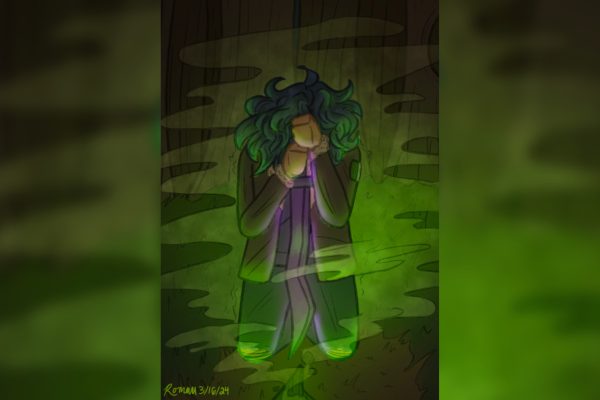
So many struggling queer kids simply need support. Support saves the lives of so many people, its importance can never be understated.
When Nico gets support from his friends, things are not immediately fine. No problem can be solved that quickly, but it plants a seed in his brain. One that whispers “death is not the answer,” softly in his ear when he remembers who he is. He cannot give in to Nyx’s desires. Still, Nico shuts himself off from the world. He hides away, lurks in solitude, and tries his best to stay that way. Unluckily for him, he and Jason Grace are faced with the task of claiming Diocletian’s scepter from Cupid, god of love. Favonius, the God of the west wind working for Cupid, tells Nico that in order to get the scepter he needs to admit the truth about who he loves.
Jason thinks Nico is in love with Annabeth.
But Nico has never felt more afraid in his entire life, shaking and killing the grass beneath his feet.
When Cupid begins to fight off the demigods, Cupid pries at Nico, Jason aside. He needs Nico to admit who he is, and he will not let him rest until he does.
Nico lies, saying he is in love with Annabeth,
Cupid finds it laughable.
Nico screams at Cupid, his anger and fear rippling off him, giving Jason a glimpse into Nico’s memories. Especially his memories of Percy. Quickly, Jason begins to understand more, seeing the trials Nico had been through while also being tied to someone who would never see him the same way.
Nico fights it a bit longer, but there is no hiding anymore. Anguished and terrified, he admits it. Cupid hands him the scepter and departs. Jason remembers how Nico grew up in the 1930s, and saw how much he feared his queerness. In a moment I will never forget, Jason Grace, son of Jupiter/Zeus and leader of Camp Jupiter, tells Nico “I’ve seen a lot of brave things. But what you just did? That was maybe the bravest.”
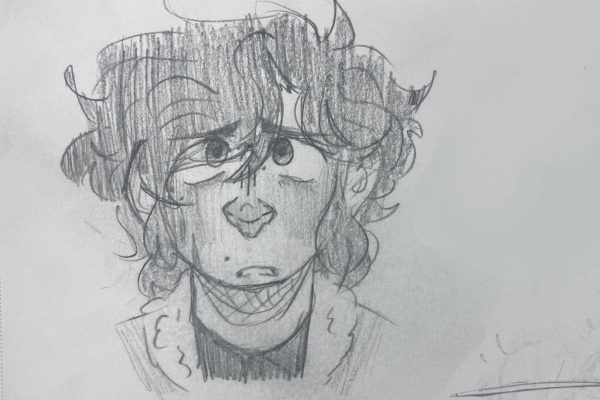
Nico and the rest of the demigods save Percy and Annabeth as well as closing the doors of death. Next, Nico is tasked to transport the Athena Parthenos from Greece to Camp Half-blood along with two other people via his ability to shadow travel. Nico barely has any energy left in him after going through Tartarus, a death trance and closing the doors of death, but he does so anyway. In transporting the statue and two friends, Nico wears himself thinner than he ever has, still facing monsters after having used all his energy to shadow travel. By the time they reach Camp Half-Blood, Nico’s fingertips have begun to fade, as if he is being consumed by the shadows.
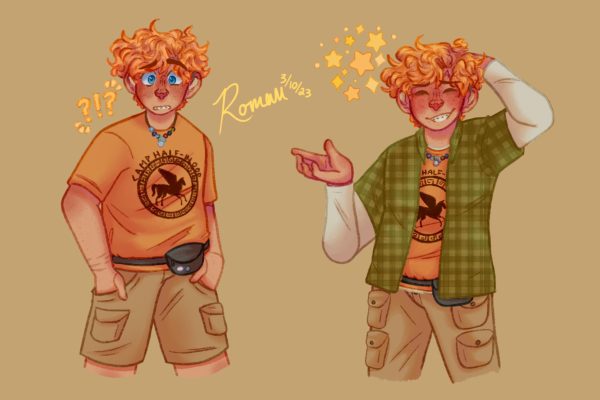
When they go to enter Camp Half-Blood, Nico meets Will Solace, an energetic Son of Apollo (god of the Sun, Music and Health) , guarding the perimeters of the camp. Will rambles on to Nico about how he just helped deliver a baby an hour or two before. He grabs Nico’s hands to show him how he is still shaking. Nico jumps away quickly. With one touch, Will, Camp Half-Blood’s top field medic and son to the god of Health, immediately begins to fuss over Nico. He tells Nico if his shadow travels again, he may just dissolve into the shadows for good. When Camp Half-Blood is attacked, Will stays by Nico’s side and protects him even though he is magically weaker than Nico.
After the battle, Nico admits to Percy that he used to be in love with him. Emphasis on used to. He tells Percy he has moved on, and walks off to join Will in the infirmary.
At first, queerness can feel like a curse. A curse to be different. You feel like with this one difference you have lost everything, that no one will ever love you. Being gay or trans itself is not the horrible thing. It is wonderful to know who you are and love who you want. The curse is how people around you morph it. This is called minority stress. I love being trans, but it is the societal pressures placed on me to repress my identity that hurts me. And when you are deep in that pit, it is so easy to give into the darkness, much like Nico tackles in Tartarus.
But Nico is saved. Even if out of spite, he pushes through because there are people on earth that he cares about. Without even knowing it, so many queer people have done the exact same thing, pushed through the dark when they wanted to give in. 41% of young queer people (youths and young adults) have seriously considered suicide in 2023. But it is so important to recognize that we only have that statistic because that 41% of LGBTQ+ people are still alive. They may have been afraid and hurting, but they are alive and pushing through.
Even after coming out, there are still hurdles. When Nico comes out for the first time to Jason, things do not immediately go uphill for him. In fact, he struggles a lot with giving into the darkness with his shadow travel just as he did with Nyx. This is because coming out can be what makes it feel “real”. It is one thing to know by yourself that you are gay or trans, but it is another thing when others know too. There are new hurdles after coming out just as there were hurdles to get to coming out. Once more, when Nico wants to give in to his fears, someone, Will, is there to lend a helping hand.
After coming out, finding an accepting community is the most important part. When queer people find acceptance, it can truly save a life.
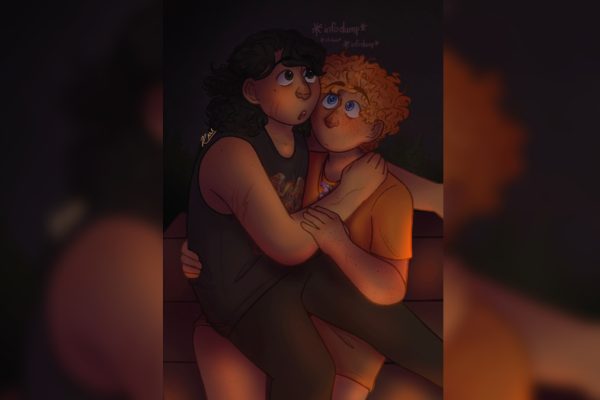
Following his meeting of Will Solace, Nico’s life changes. For the first time in years, he begins to heal. Six months after Blood of Olympus, Will introduces Nico to Apollo as his boyfriend. Nico is admittedly embarrassed, but we quickly learn that Nico has made a lot of progress since we last saw him.
Nico goes from closed off, afraid, silent and hidden, to happy, talkative, and on the mend. Granted, not everything is perfect. Nico was diagnosed with PTSD and he still struggles a lot. He has only begun to open up towards people he trusts, but still it is the first time since Bianca died that he has even trusted anyone. He holds Will’s hand openly, participates in camp activities with him, breaks camp rules to sit with the people he cares about. In return, Will pushes Nico out of his comfort zone in small nudges at a time. Will calls him his boyfriend, Nico fusses over it, but he does not deny it. Instead he says Will is his “Significant Annoyance.”
And for the rest of the series, Nico makes even more progress.
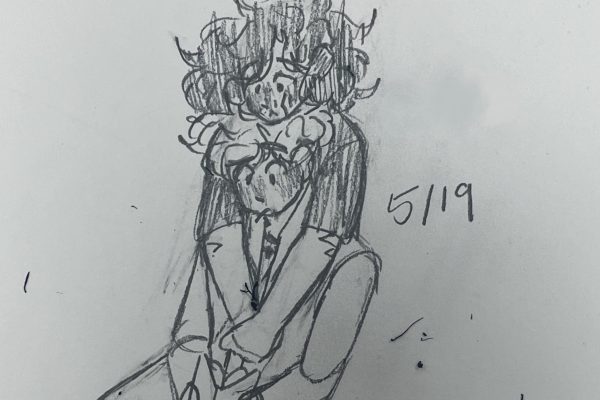
In The Sun and The Star: A Nico di Angelo Adventure, we see Nico about a year later. From the depths of Tartarus, Nico is given a quest. He and Will are to adventure into Tartarus, and face Nico’s fears as well as rescue his friend.
This book even more so enhances Nico’s comfortability with himself. He openly says he is gay, recalls moments in his and Will’s relationship, kisses him whenever he feels he wants to, but most importantly he cries. Nico cries a lot. He is no longer afraid of his feelings, he has learned that he needs to express and feel them and that repression does him no good. Nico talks about how he feels, finally beginning to understand who he is.
Again, Nico is not “healed” in The Sun And The Star. In fact, that is exactly what the whole book surrounds.
Earlier in this article I discussed grappling with one’s own darkness, darkness meaning your own traumas, fears, and things that hurt you. The message of The Sun and The Star is to accept one’s own darkness. Not to give into it, but accept that it is a part of you instead of running from it.
Will, while previously giving the impression of sunshine in human form, has his own darkness too, but as a doctor he has been too focused trying to fix it and make it go away, that he has forgotten how to make it go away. When Will enters the underworld, a place that quite literally is death’s destination, he is repulsed by it. He does not like it, he cannot see why anyone would ever want to stay there. But it is Nico’s home. And as they traverse the underworld before Tartarus, Will slowly accepts that, even in the dark, there is light. In Persephone’s garden, he sees that even in the world of the dead, she can still grow a garden, the plants just need different care.
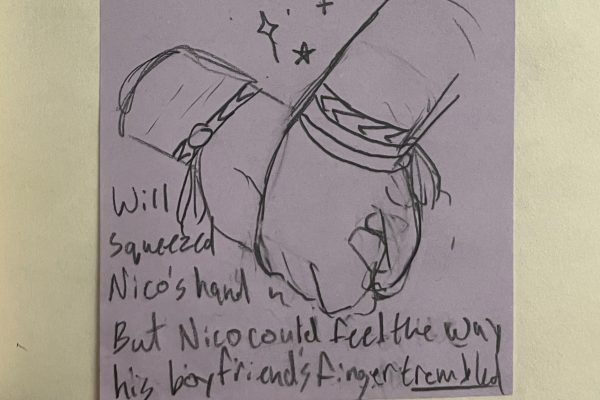
Darkness does not have to be a burden, it just has to be a part of us. You cannot have darkness without the light, happiness without the troublesome. We should not make our darkness adapt to us, rather accept that it is not something we can change and learn to help ourselves grow with it.
In the climax of the book, Nyx bestows upon Nico cacodemons. Cacodemons are physical manifestations of all that hurts a person. Suddenly, at Nyx’s feet, Nico’s grief, shame, fear, and all components of himself he struggles with are readied for attack. She calls them his children.
Nyx believes Nico would only flee and be defeated by his literal demons, But Nico refuses to fall into that path.
Nyx tells him, “Accept it! Accept that you prefer the darkness. You prefer suffering. You know it is true! Your own children prove it! Stop denying your nature!”
Nico simply responds, “You have no idea who I am,” and charges towards Nyx with his drawn sword and skeletons crawling from the earth.
“And now here was Nico di Angelo, the boy [Will] fallen in love with, fighting to return to the mortal world. It all came to Will so suddenly then: Nico might have been born to Hades. He might have suffered untold amounts of pain and sorrow. He was at home in darkness. But that didn’t mean that he couldn’t choose the alternative. Will knew that for a fact because Nico burned brightly as he fought Nyx, as he dodged her tendrils of smoke and hacked at her body. There was a ferocity in him, a power and a fury that could scorch the galaxy when he battled for those he cared for. And he was now using it to fight for himself. Even in the darkest parts of life, there was still … light. Like the plants in Persephone’s garden. Like Menoetes’s love for Geryon. Like the ingenuity and loyalty of the troglodytes. And no light was brighter than Nico di Angelo.”
Nico reclaims his story and he finally realizes that it is his. It is his story, and he gets to decide how it ends. He does not have to let his troubles control him anymore, they are his and his to own.
And at the same time, Will reaches into himself. Nico finally accepts the darkness in himself, turning it to light. Will, conversely, taps into the darkest part of himself. Apollo, his father, God of health, and light but also of the plague. A doctor dedicated to saving lives and healing anyone in his path, curses a primordial goddess, the embodiment of the dark with no true form, with hay fever.
Nyx sends the cacodemons to attack Will, and suddenly Nico sees it; the cacodemons are his and his alone. He can no longer let them control his actions, he has to reclaim them as his own. He tells them to stop. They turn. Nyx orders them to attack. Instead, the cacodemons prance up to Nico, gathering at his feet and awaiting his beck and call.
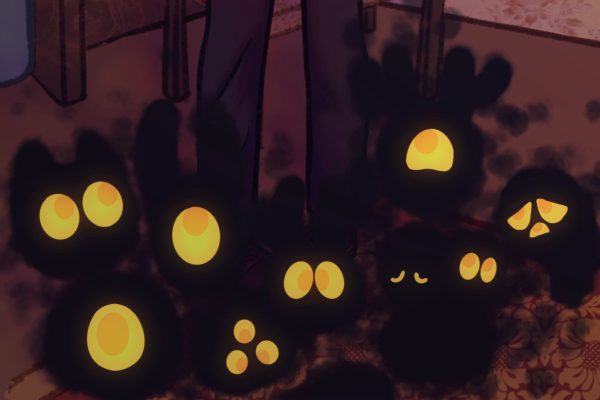
Darkness does not have to mean hopelessness. Darkness does not have to be evil. It just has to be. The strongest thing anyone can do is to let it be.
Nyx’s own children, Hypnos, Nemesis and Epiales see it too. Nyx orders them to attack, to defend her. In return, Hypnos, god of sleep, sends her into a slumber.
Just in reclaiming his darkness for himself, for accepting that the parts of himself he wanted to get rid of and seeing that they are a necessary part of himself, he can take down a goddess as old as creation itself.
I think Nico’s reclamation of what hurt him is the most important part of his entire story. It is so easy to feel hopeless, lost and as if you will suffer forever. In giving Nico a true happy ending, one where he reclaims what he once feared, queer readers across the world will have an example that happiness is possible.
In a world where queer people are led to believe happiness is unattainable, the story of Nico di Angelo shows that even in the most dire situations, you can still emerge victorious beyond your wildest dreams.
So many queer characters are left as they are. So many queer love stories end in tragedy because that was the only way their stories could be told. For years it was illegal to write happy endings for gay couples in literature or on the screen because of the hays code prohibiting “perverse subjects.” So, Nico di Angelo having an ending in which he thrives is far more important than anyone could know.
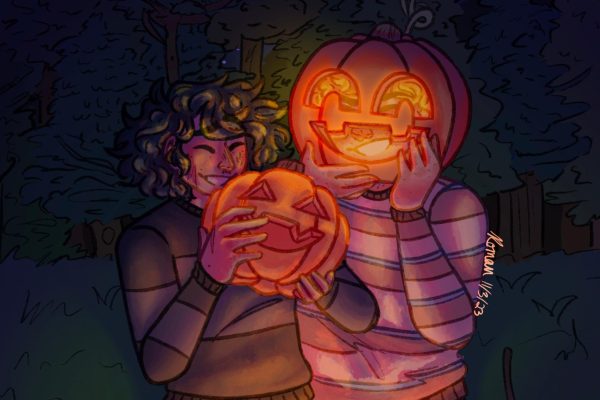
Your troubles do not define you, your differences do not either. The bravest thing you can do is love yourself and embrace who you are, no matter how different.
For so many, the goal is just survival. For Nico, his goal used to be survival too, but instead he reached something even better, happiness. He does not just win, he triumphs.
Nico di Angelo will always be my favorite character, a reminder that life will not always be this hard. It will not always be easy either, but I will still have life, and I have to make the most of it because the most radical thing that you can do in a world of hate is be happy.


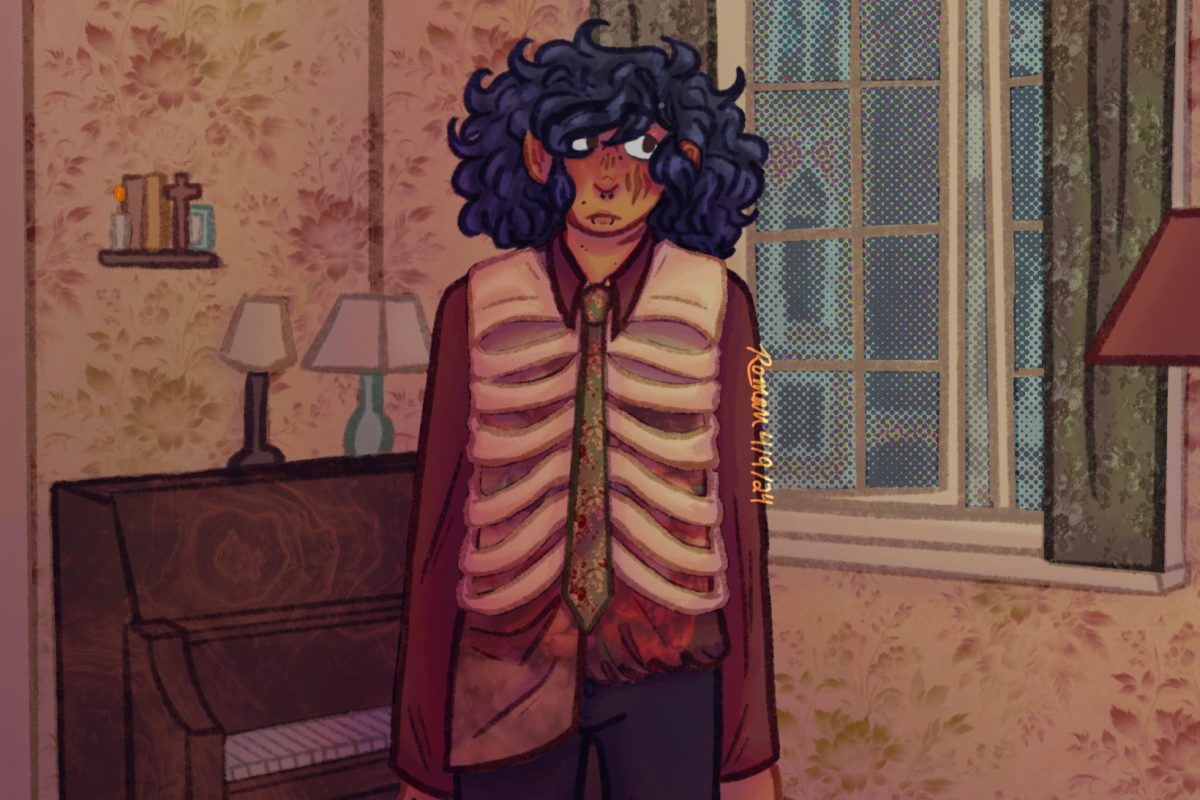




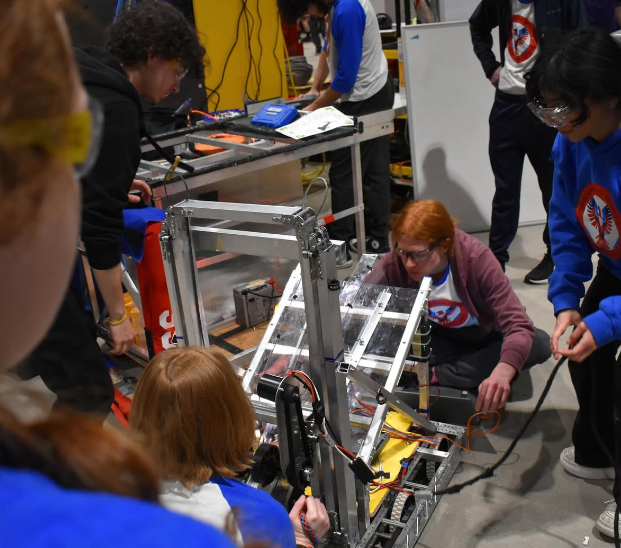
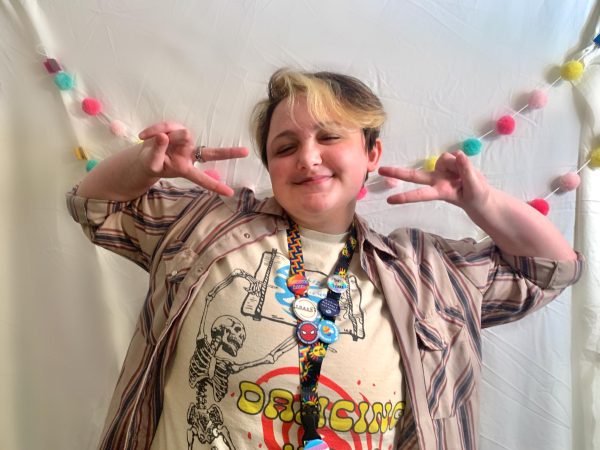
Emilie • Aug 27, 2024 at 10:39 pm
I love this little bit of writing. me myself am Bisexual, Its not as big or noticable as trans, or gender fluid. But i have to admit that I may have at one point had a book chrush on Nicos character. I know he’s Gay, but still. Hes just such an amazing character, I truly love his ending with Will Solace. May Solangelo never end.